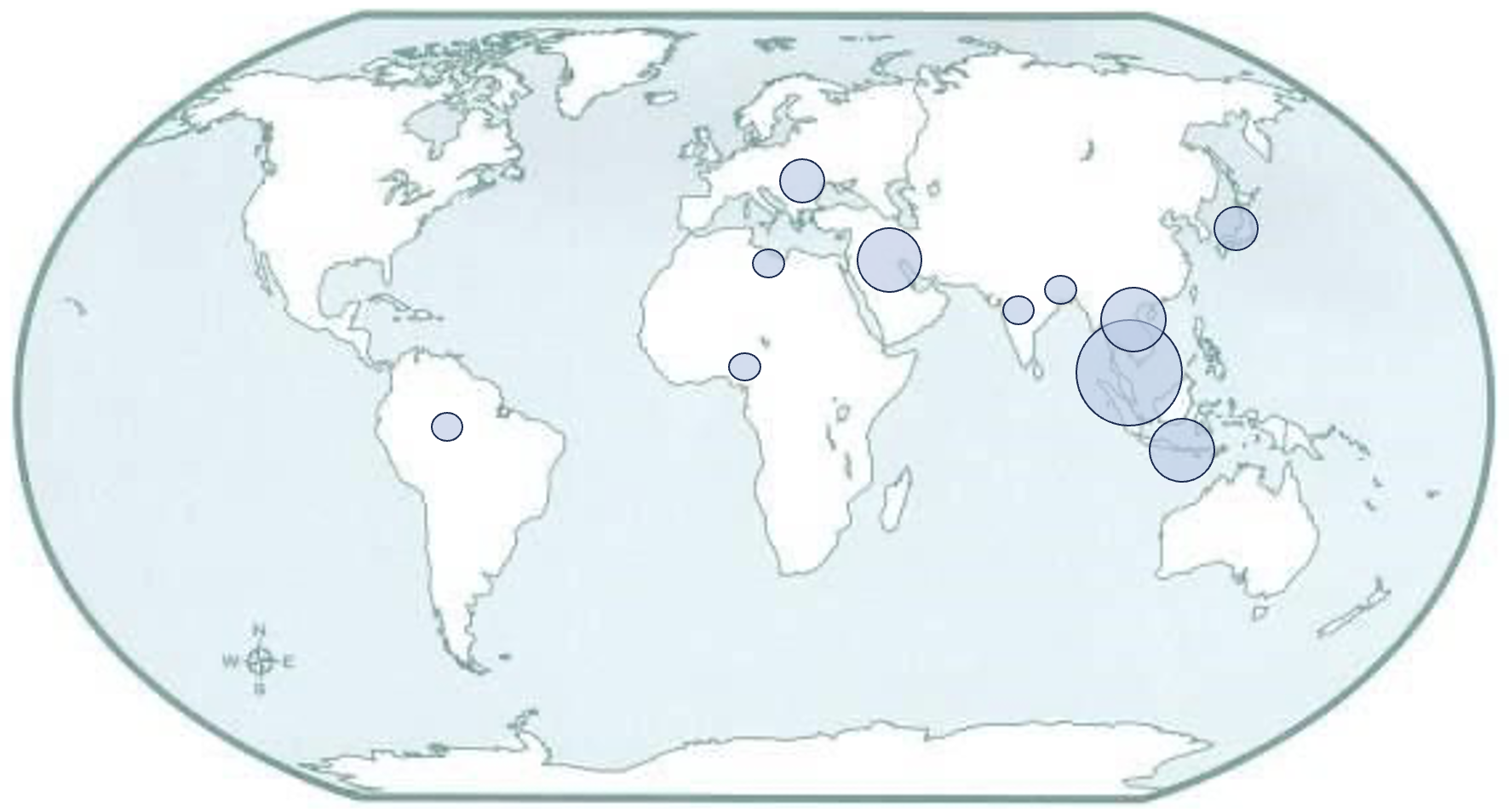Sustainable Waste Oils Polymer Doped with Titanium Dioxide as Ultraviolet Stabilizer
DOI:
https://doi.org/10.37934/armne.27.1.5875Keywords:
Polymers, photodegradation, TiO2, thermal degradationAbstract
Waste oils for biopolymer conversion process namely as sustainable monomers with biodegradable properties that are prepared in a multi-stage synthesis route from vegetable oils. These sustainable monomers from virgin oil (VO) and waste oil (WO) were mixed with hardener to form virgin oil sustainable polymer (VOP) and waste oil sustainable polymer (WOP). VOP and WOP were left to cure at ambient temperature for at least 6 hours and removed from the mould. The steps were repeated to fabricate sustainable polymer composite (SPC) doped with different percentages of TiO2. The samples of biopolymer (BP) are based on VOP and WOP, while biopolymer composites (BPC) were based on TiO2 percentage. The thickness of the prepared sample is from 110 to 250 µm according to ASTM D1005-95. The study on the thermal stability property of these polymers in oven thermal exposure shows a significant stability of these polymer films which was determined by calculating the carbonyl index (CI) of polymer films. The VOP shows the least stability upon thermal exposure which its molecular chains contain many reactive sites, thus providing more potential for degradation, resulting in lower thermal and bio-stability. Also, it is revealed that polymers are susceptible to photodegradation initiated by heat or UV light during processing or long-term use. Therefore, UV accelerated weathering test was conducted according to ASTM D 4587-Standard practice for fluorescent UV-condensation exposures of paint and related coatings. Furthermore, a tensile test was conducted to determine the strength and ductility of a material. The mechanical properties of polymer thin films were significantly reduced by UV irradiation exposure. As opposed to WOP, VOP gives better results for tensile strength and elongation at break.
Downloads

























